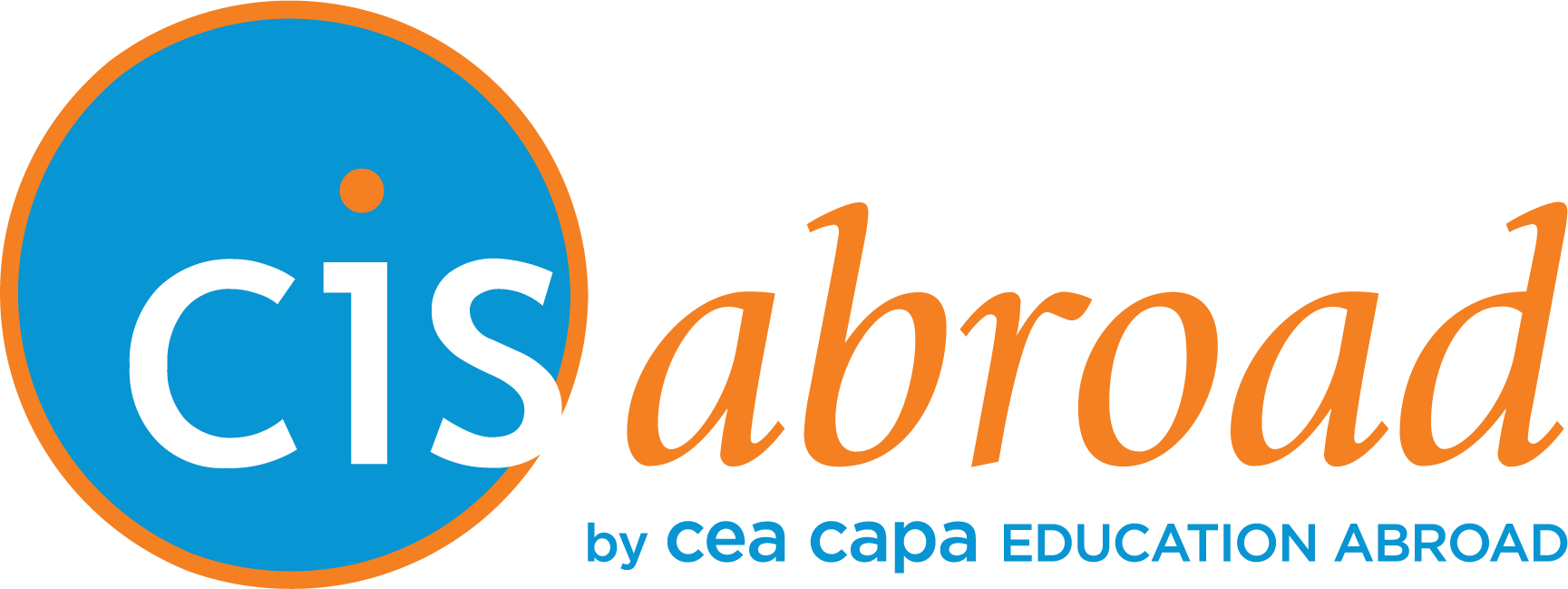Access for Diverse Students Abroad
CIS Abroad envisions a world without borders, not just geographical, but also those that limit access to our full human potential. We are driven to break down these barriers, ensuring that the transformative power of international education is within reach for every student, reflecting the beautiful diversity of our world.
.jpg?width=1100&height=825&name=South%20Korea%20SP2023%20Hanbok%20at%20Gyeongbok%20Palace._1_1%20(1).jpg)
CIS Abroad collaborates with US college and university partners to encourage participation by students from a variety of backgrounds. We also work closely with our overseas partners to ensure our locations and programs are inviting of each individual participant.

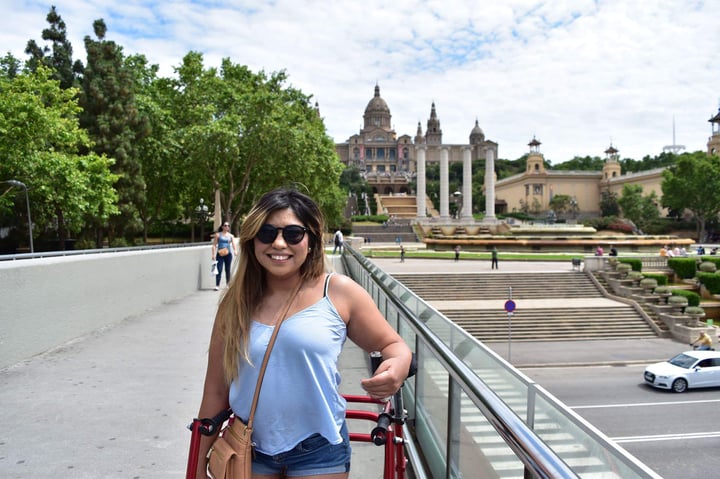
Students with mobility issues, learning disabilities, and mental illness study abroad with us every year.
Our knowledgeable advising staff knows our host institutions well and can advise on what accommodations are offered.
Our site directors are available to offer extra support and work closely with individual students and the overseas institutions they are attending to ensure the best possible experience.
“My greatest challenge was adapting to the city and learning from its unique culture. As a student with a physical disability, my main concern was accessibility. However, CIS Abroad was always attentive and the responses I received whenever I had a question put me at ease.”Shalom Hernandez, UT Austin, Intern in Barcelona – Spring 2017
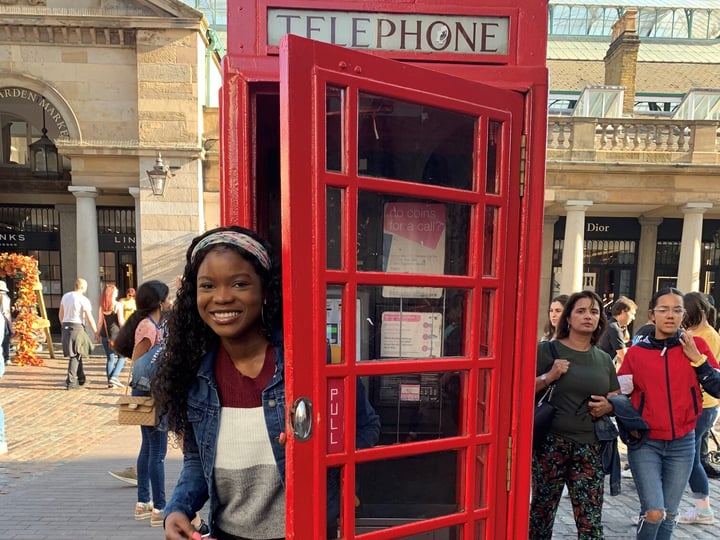
Students that are underrepresented in higher education in the United States may find the same trend while studying abroad. The good news is that racially and ethnically diverse students take part in life-changing study abroad programs every day. We know it takes extra initiative to reach out and ask questions and our staff is knowledgeable and equipped with tools to guide students who identify as racially and ethnically diverse, ready to help with any perceived challenges. Watch a recording of our Being Black Abroad webinar here!

CIS Abroad gives grants and scholarships to 70% of accepted students, and we are known for high value and affordable prices. We understand that financial need is an important factor, and we are here to help you navigate how to make your dream a reality. We support our students and parents by providing scholarships, payment plans, and offer flexibility in program packages. We train our staff to identify financial need early on so they may begin to assist students with aid from the start of the process, all the while offering our programs at the highest quality.
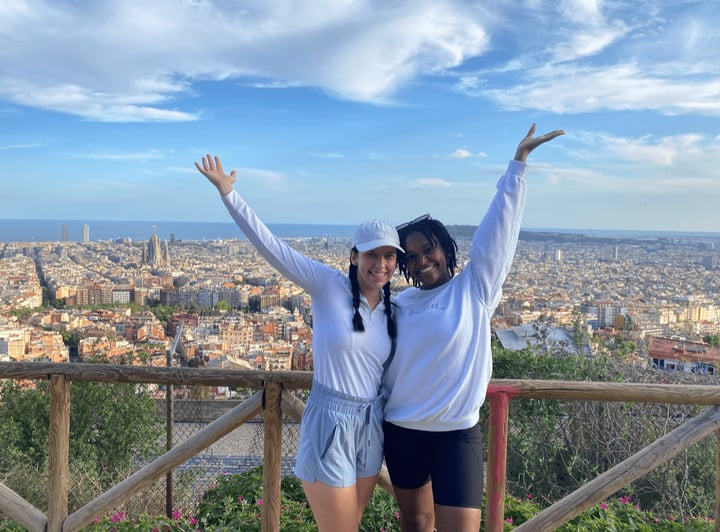
Many of our participants find that they are the first in their family to attend college or university. Some are the first in their families to travel internationally. We have several first-generation college students on staff and we know firsthand the extra excitement and challenge of studying abroad. During both the application process and on-site, first-generation college students get the support they need from us.
We also have a scholarship for first-generation students (up to $500). Read more about it on our Scholarships and Grants page
“My greatest challenge was adapting to the city and learning from its unique culture. As a student with a physical disability, my main concern was accessibility. However, CIS Abroad was always attentive and the responses I received whenever I had a question put me at ease.”Shalom Hernandez, UT Austin, Intern in Barcelona – Spring 2017

Students who have belief systems outside the majority in their host country may need extra support to find resources abroad to maintain their spiritual practice. Our advisors work with students to talk about what their host country is like culturally and what supports are available.
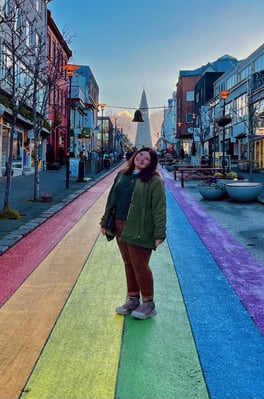
Studying abroad as an LGBTQIA+ or gender nonconforming student brings an additional set of challenges and options to consider. There are some questions you may want to ask yourself, and research to be done, before choosing a study abroad location.
Being safe and comfortable is important to any study abroad adventure, and CIS Abroad wants to ensure both of those for our students. As a proud supporter of Generation Study Abroad, we are focusing on the LGBTQIA+ student population in an effort to not only increase students’ knowledge about and access to education abroad, but to also better serve those students as Ally Advisors.
Some questions to ask yourself before studying abroad:
- How out do I want to be to my host family or roommates?
- Is it important for me to participate in LGBTQIA+ activities and events while abroad?
- Is discussing my sexual orientation or gender identity something that is important to me?
- What are the social attitudes towards being LGBTQIA+ in my host country?
- Are there resources for LGBTQIA+ students in my host country or at my place of study?
- Are there any LGBTQIA+ groups or LGBTQIA+-friendly establishments in my area?
- Are sexual orientation and gender identity openly discussed and accepted, or more taboo in my host country?
- Will I be staying with a host family or roommates who will be accepting of me if I choose to come out?
- Are there safety and legal issues for LGBTQIA+ individuals in this area?
Top LGBTQIA+ Friendly Programs
Studying abroad as an LGBTQIA+ or gender nonconforming student brings an additional set of challenges and options to consider. We sent an in-depth survey to our program partners, and combined with positive feedback from students, created the list of Top LGBTQIA+ Friendly Programs.
Below are some sample survey questions:
- Does the local community have resources for LGBTQIA+ students?
- Are there resources on campus for LGBTQIA+ students?
- Do you have staff or counselors with the ability to address and understand the needs of LGBTQIA+ students?
- Do you have any LGBTQIA+/ Women & Gender Studies course offerings?
- Do you have a non-discrimination statement inclusive of sexual orientation and gender identity?
Additional Resources for LGBTQIA+ Students
Guides
- Be Globalii – A Guide for LGBTQIA+ Students Abroad
- Out Traveler offers information on LGBT destinations and events
- GoAbroad's LGBTQ Study Abroad Guide
- GoAbroad's 7 Tips for Coming Out to Your Host Family Abroad
Human Rights and Government Resources
- The International Lesbian, Gay, Bisexual, Trans and Intersex Association (ILGA) offers Lesbian and Gay Rights Maps that detail legal climate
- ILGA Europe-specific Information
- Equaldex – LGBT Rights by Country
- U.S. State Department – LGBTQ Travelers
- National Center for Transgender Equality – Passports
- National Center for Transgender Equality – Travel
- U.S. State Department – LGBTQ Travelers
- The National Center for Transgender Equality provides air travel and airport security tips for transgender individuals who often times face difficulty and discrimination while traveling.
- Outright International – Country Overviews

Students with mobility issues, learning disabilities, and mental illness study abroad with us every year.
Our knowledgeable advising staff knows our host institutions well and can advise on what accommodations are offered.
Our site directors are available to offer extra support and work closely with individual students and the overseas institutions they are attending to ensure the best possible experience.
“My greatest challenge was adapting to the city and learning from its unique culture. As a student with a physical disability, my main concern was accessibility. However, CIS Abroad was always attentive and the responses I received whenever I had a question put me at ease.”Shalom Hernandez, UT Austin, Intern in Barcelona – Spring 2017

Students that are underrepresented in higher education in the United States may find the same trend while studying abroad. The good news is that racially and ethnically diverse students take part in life-changing study abroad programs every day. We know it takes extra initiative to reach out and ask questions and our staff is knowledgeable and equipped with tools to guide students who identify as racially and ethnically diverse, ready to help with any perceived challenges. Watch a recording of our Being Black Abroad webinar here!

CIS Abroad gives grants and scholarships to 70% of accepted students, and we are known for high value and affordable prices. We understand that financial need is an important factor, and we are here to help you navigate how to make your dream a reality. We support our students and parents by providing scholarships, payment plans, and offer flexibility in program packages. We train our staff to identify financial need early on so they may begin to assist students with aid from the start of the process, all the while offering our programs at the highest quality.

Many of our participants find that they are the first in their family to attend college or university. Some are the first in their families to travel internationally. We have several first-generation college students on staff and we know firsthand the extra excitement and challenge of studying abroad. During both the application process and on-site, first-generation college students get the support they need from us.
We also have a scholarship for first-generation students (up to $500). Read more about it on our Scholarships and Grants page
“My greatest challenge was adapting to the city and learning from its unique culture. As a student with a physical disability, my main concern was accessibility. However, CIS Abroad was always attentive and the responses I received whenever I had a question put me at ease.”Shalom Hernandez, UT Austin, Intern in Barcelona – Spring 2017

Students who have belief systems outside the majority in their host country may need extra support to find resources abroad to maintain their spiritual practice. Our advisors work with students to talk about what their host country is like culturally and what supports are available.

Studying abroad as an LGBTQIA+ or gender nonconforming student brings an additional set of challenges and options to consider. There are some questions you may want to ask yourself, and research to be done, before choosing a study abroad location.
Being safe and comfortable is important to any study abroad adventure, and CIS Abroad wants to ensure both of those for our students. As a proud supporter of Generation Study Abroad, we are focusing on the LGBTQIA+ student population in an effort to not only increase students’ knowledge about and access to education abroad, but to also better serve those students as Ally Advisors.
Some questions to ask yourself before studying abroad:
- How out do I want to be to my host family or roommates?
- Is it important for me to participate in LGBTQIA+ activities and events while abroad?
- Is discussing my sexual orientation or gender identity something that is important to me?
- What are the social attitudes towards being LGBTQIA+ in my host country?
- Are there resources for LGBTQIA+ students in my host country or at my place of study?
- Are there any LGBTQIA+ groups or LGBTQIA+-friendly establishments in my area?
- Are sexual orientation and gender identity openly discussed and accepted, or more taboo in my host country?
- Will I be staying with a host family or roommates who will be accepting of me if I choose to come out?
- Are there safety and legal issues for LGBTQIA+ individuals in this area?
Top LGBTQIA+ Friendly Programs
Studying abroad as an LGBTQIA+ or gender nonconforming student brings an additional set of challenges and options to consider. We sent an in-depth survey to our program partners, and combined with positive feedback from students, created the list of Top LGBTQIA+ Friendly Programs.
Below are some sample survey questions:
- Does the local community have resources for LGBTQIA+ students?
- Are there resources on campus for LGBTQIA+ students?
- Do you have staff or counselors with the ability to address and understand the needs of LGBTQIA+ students?
- Do you have any LGBTQIA+/ Women & Gender Studies course offerings?
- Do you have a non-discrimination statement inclusive of sexual orientation and gender identity?
Additional Resources for LGBTQIA+ Students
Guides
- Be Globalii – A Guide for LGBTQIA+ Students Abroad
- Out Traveler offers information on LGBT destinations and events
- GoAbroad's LGBTQ Study Abroad Guide
- GoAbroad's 7 Tips for Coming Out to Your Host Family Abroad
Human Rights and Government Resources
- The International Lesbian, Gay, Bisexual, Trans and Intersex Association (ILGA) offers Lesbian and Gay Rights Maps that detail legal climate
- ILGA Europe-specific Information
- Equaldex – LGBT Rights by Country
- U.S. State Department – LGBTQ Travelers
- National Center for Transgender Equality – Passports
- National Center for Transgender Equality – Travel
- U.S. State Department – LGBTQ Travelers
- The National Center for Transgender Equality provides air travel and airport security tips for transgender individuals who often times face difficulty and discrimination while traveling.
- Outright International – Country Overviews

